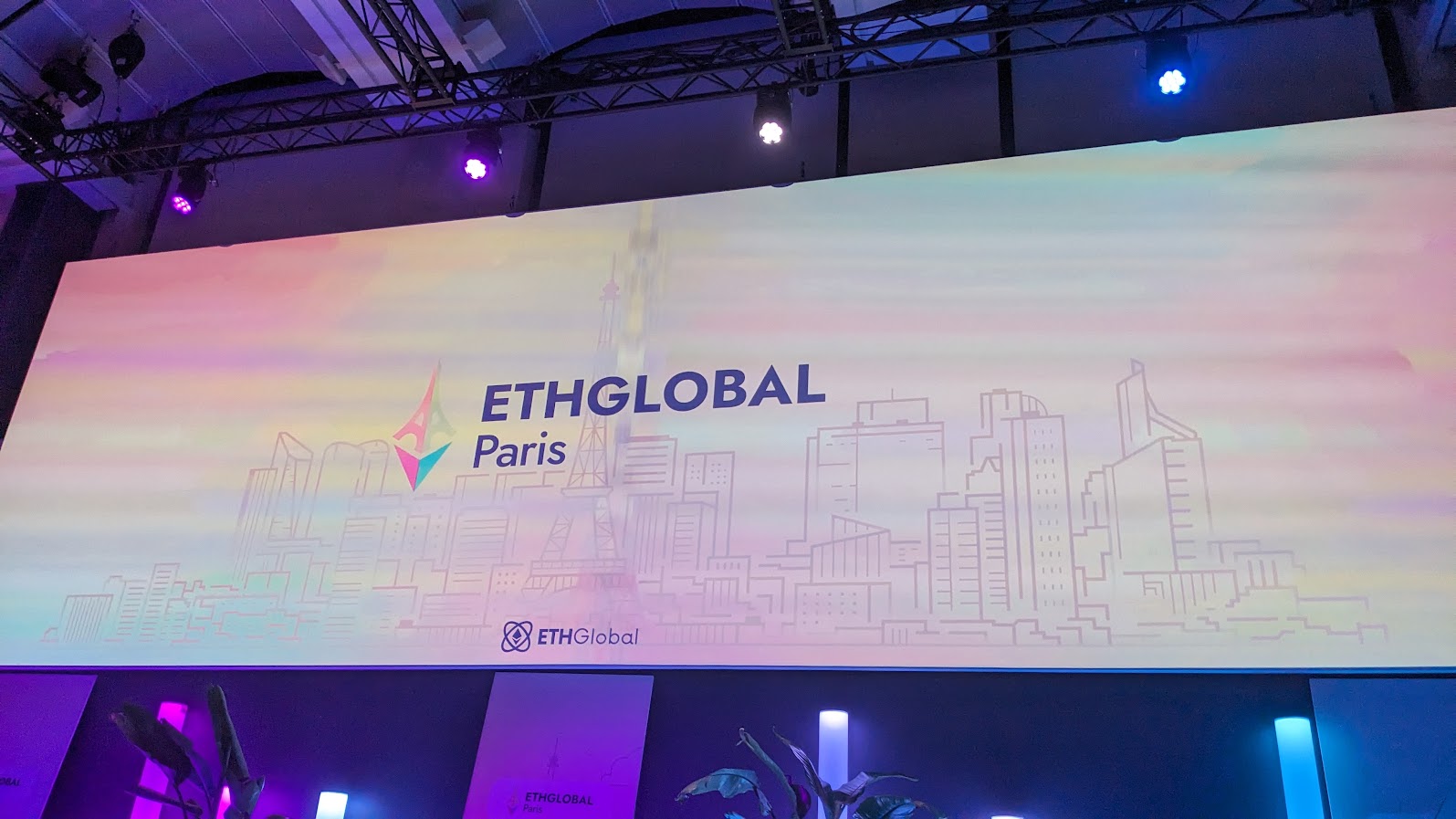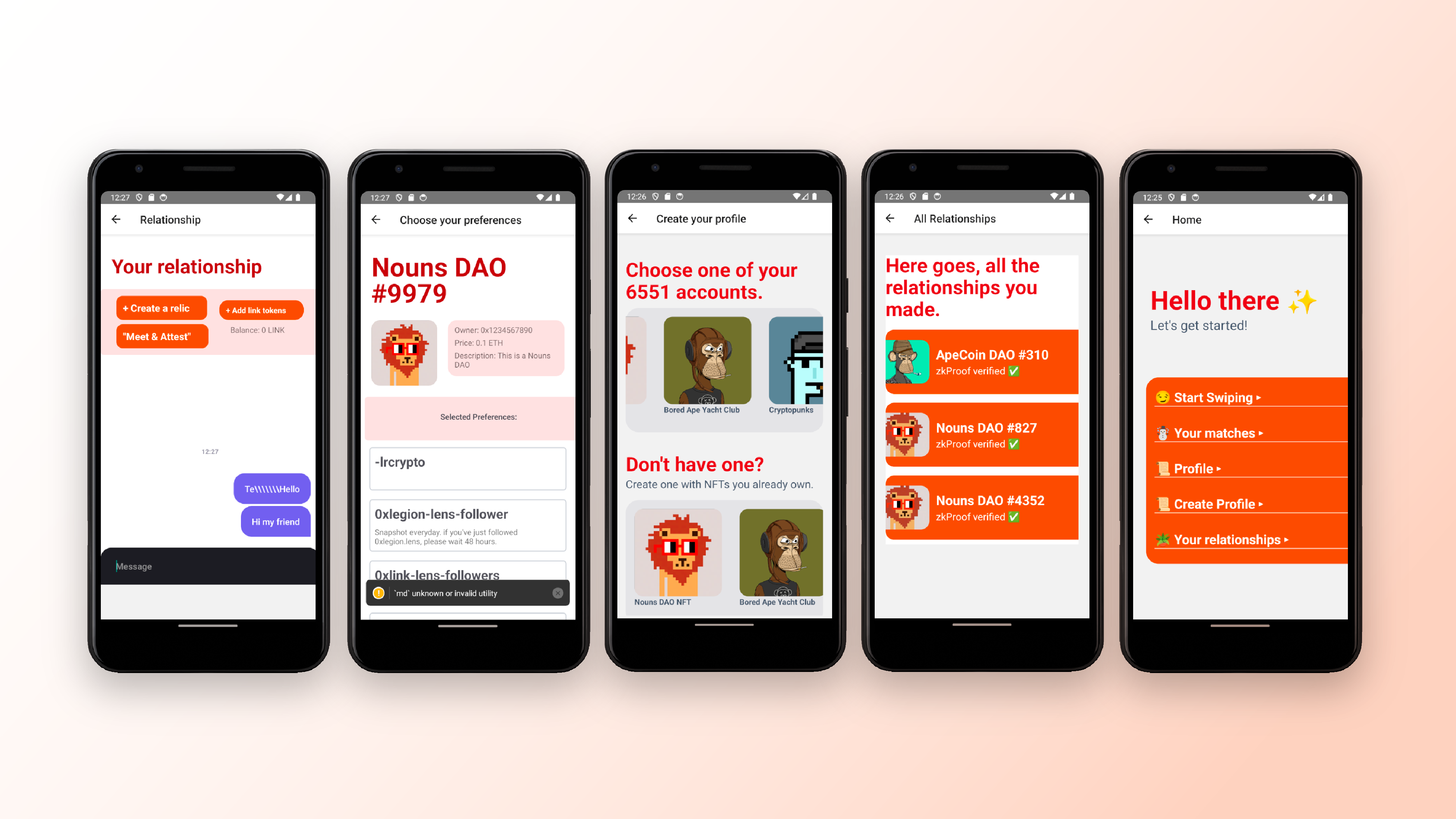Announcing the EthGlobal Paris Chainlink Prize Winners
In Web3, every week matters. Project launches, project releases, and protocol updates come out at a lightning-fast pace. Developers must stay agile, stay up-to-date on the latest tools, and connect the dots to incorporate all they’ve learned—old and new—to build applications that push the limits of Web3 technology.
ETHGlobal Paris is the stomping ground for this type of innovation: With 960+ total participants and 321+ total project submissions, many participants built their hackathon projects with Chainlink oracle services, including the Cross-Chain Interoperability Protocol (CCIP). In this post, we’re pleased to announce the seven projects that stood out from the crowd.

Hackathon Winners
A total of $10,000 in Chainlink prizes at ETHGlobal Paris were awarded to hackathon participants.
- $2,000 each to three standout teams that best integrated CCIP into their project
- $1,000 each to four teams that best utilized other Chainlink services within their hackathon project
CCIP Prize Winners
CCIP Limit Orders
Built by solo developer Louis Myself, CCIP Limit Orders enables users to transact tokens peer-to-peer in a cross-chain environment. Specifically, any user can create a specified limit order for a token exchange, and another user (taker) can fill the order from any chain using a CCIP programmable token transfer—unlocking cross-chain liquidity. The project also takes a security-first approach by mitigating scenarios where orders are not filled.
Flora App
Created by developers Alok Sahay, Regis Graptin, and Krisztian Barta, Flora is a mobile-first micro-lending platform that provides uncollateralized loans to rural farmers in developing countries. The project connects applicants with NGOs and DAOs, who act as attestation partners/loan guarantors—enabling farmers to take out no-collateral loans. Flora also leverages CCIP token transfers to transfer borrowed funds to the blockchain best suited to the borrower, helping bypass UX barriers by meeting the borrower on the blockchains they’re already familiar with.
Ticketh
Pioneered by developers Ulaş Erdoğan, Ege Aguş, Hamza Karabağ, and Caner Budak, Ticketh is an attestation-based, cross-chain ticket reputation protocol that tracks a user’s activity (for example, event attendance), enabling organizers to offer perks based on a user’s reputation. While the project stores all attestation and identity data on a single “master chain,” users can use Ticketh from multiple other blockchains due to Chainlink CCIP’s arbitrary messaging, which sends ticket purchasing data to the master chain.
Chainlink Prize Winners
Binder

Binder is an NFT-matching platform that enables users to register their existing NFTs and match them with similar NFT profiles. Built by developers Gabriel Antony Xaviour, Fabian Ferno, Maria Badke, and Silvia Margarita Ocegueda, Binder safeguards user preferences using zero-knowledge proofs held within soulbound accounts attached to individual NFTs. Successful connections between two NFT profiles unlock the ability to mint new NFTs that are generated by the Stablecog AI image generator, connected on-chain using Chainlink Functions, and randomly assigned rarities using Chainlink VRF.
ETHWaldo
ETHWaldo is a platform that connects sponsors and digital marketing agencies with content creators, with on-chain processes that automate payments based on specific performance metrics such as views, likes, or link clicks being met. Hackathon participants Marcos Torres, Samuel Schmitt, Gianangelo Dichio, and Daphne Kalkanis used Chainlink Functions to connect social media APIs to the ETHWaldo smart contracts, a mission-critical component for accurately calculating payment requirements.
NoxFi
NoxFi is a decentralized exchange that uses zero-knowledge proofs—and specifically multi-party computation (MPC)—to hide pre-trade information, helping mitigate the impact of frontrunning, especially for large-volume trades. Developers Taekeon Go, Iljae Kwon, and Eunho Lee used Chainlink Price Feeds to help guide users in selecting a proper price for auctions made on the platform.
Omnichain Governor Standard
Omnichain Governor Standard enables users to interact with DAOs across various blockchains, eliminating the need for users to hold governance tokens on a specific chain to participate in governance. Built by Carlos Ramos, Shiv Bhonde, and Olga Kuri, the project uses Chainlink Functions to connect to a custom API endpoint that updates the state of governance proposals across various blockchains.
Wrapping Up ETHGlobal Paris
Thank you to all the participants for their diligent efforts. Web3 is nothing without developers like you: Every hackathon team contributed to the overall advancement of blockchain and oracle technology, as well as Web3’s application stack.
For those interested in continuing to push the boundaries of what’s possible with Chainlink’s industry-standard Web3 services platform, make sure to check out the Chainlink documentation for a full deep dive into Chainlink services and stay tuned for the upcoming Chainlink Hackathon—where the best projects compete to build applications that leverage the combined power of Web2 and Web3.
